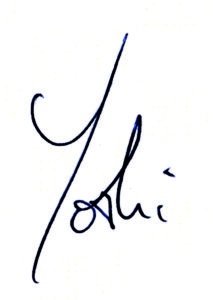A few years ago, during the darkest days of the pandemic, I found great comfort not only in words like these from our beautiful tradition, but also through the practice of meditation taught to me by my instructors at the Institute for Jewish Spirituality.
In my favorite practice—”Befriending Meditation”—the guide asks us—the participants—to think of ourselves, those we love, and even those with whom we are experiencing difficult interactions and wish for ourselves and others the following:
May we be safe and free from suffering.
May we be happy and healthy.
May we have ease of being.
It occurred to me that this meditation, practiced widely all over the world, parallels and compliments our Priestly Benediction nicely. This shouldn’t come as a surprise—quite often we see examples of how people in different places at different times are graced with similar insights.
I’m grateful for a tradition that embeds such blessings in our rituals and our lives. And I’m grateful for the ability to continue learning and growing so that we might be exposed to the wisdom and insights of the broader world as well.
However it’s phrased, however it’s expressed, whatever melody might be employed to uplift the text and sweeten the sentiment, my prayer for our community, my loved ones, and our world is simple:
May you be safe and healthy.
May you know kindness and love.
May you experience a deep sense of wholeness and peace—shalom.
(Enjoy these links to a musical setting of the Priestly Benediction and a guided Befriending Meditation.)

